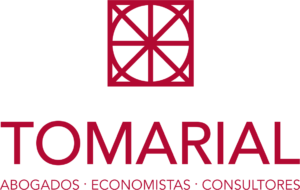On the occasion of the recent decision of the Third Chamber, Second Section, of the Supreme Court, dated February 5, 2018, (appeal 102/2016), the Superior Court of Justice of the Valencian Community has completely modified its position before the conflict the application of art. 95. Three of the VAT Law.
It is well known by all that one of the parameters that with the greatest probability can originate the initiation of a limited verification procedure in VAT matters by the Tax Agency, is the questioning of the direct and exclusive impact of vehicles, specifically passenger cars , for the development of business or professional activity. This limitation of the right to deduct is regulated in section Three of article 95 of Law 37/1992, on Value Added Tax, which indicates in point 2 that “In the case of passenger motor vehicles, trailers, mopeds and motorcycles, the development of business or professional activity will be presumed to be affected in the proportion of 50% […]. ”However, a series of vehicles are regulated, in which the deduction of 100% of the quota supported is admitted, such as mixed vehicles for the transport of goods, the provision of passenger services through consideration, used in driving schools, or even those used in the professional movements of representatives or commercial agents, among others.
In addition, section Four of the same article provides that the previous rule will also be applied in the quotas supported with respect to the following acquisitions of goods and complementary services of the goods mentioned in the previous paragraph:
- Accessories and spare parts.
- Fuels, lubricants, fuels and energy products necessary for its operation.
- Parking and toll services.
- Repair and rehabilitation thereof.
Regarding the controversy caused by the article and its application on a day-to-day basis by taxpayers, there are numerous cases that have reached the judicial route, thus exhausting the administrative route and recording a huge conflict with the Tax Agency in this matter The Superior Court of Justice of the Valencia Community, on numerous occasions, has ruled in favor of the taxpayer, using as a foundation of law, the application of the doctrine of the Courts of Justice of the European Union, as of the date ruling July 11, 1.991, Lennartz case (case C / 97/90), in which, applying the Sixth Directive and its article 17, it ruled against the Administration, since the national norm infringed the community principles regarding birth and origin of the right to deduction of the fees paid as a result of the development of professional or business activity, considering the deduction adjusted to 100% of the fees, when the taxpayer proves that the vehicle in question is effectively affected, including in case the affectation is limited.
In this regard, it has failed on numerous occasions, as in judgments nº888, of July 19, 2017 (r. 2.061 / 13), nº1512, of November 20, 2017 (r. 3035/13) or nº1592 of December 5, 2017, among many others, that have applied the provisions of the preceding paragraph, generating a jurisprudential doctrine very favorable to the taxpayer.
However, with the recent arrival of the judgment of the Third Chamber, Second Section of the Supreme Court, dated February 5, 2018, appeal 102/2016, the Valencia Chamber has been forced to take a turn of 180 degrees with respect to its previous pronouncements, to rule in favor of the Administration in the matter at hand.
In the Second Law Foundation of the aforementioned judgment, the Supreme Court establishes three important consequences against the pronouncements, both of the Superior Court of Justice of the Valencian Community, and the legal foundations of the European jurisprudential doctrine established by the Lennartz case. In this regard, the Supreme Court ruling casts doubt on the fact that the Spanish norm, and its application by the Administration, is contrary to the provisions of art. 17 of the Sixth Directive, since it is not excludes nor does the right to deduct supported fees be denied, but simply limits the right to deduct supported fees to 50 percent, notwithstanding that the taxpayer can prove that the degree of affectation is greater, and thus, deduct the fees supported in that proportion.
Something new, established by this judgment, is to compel the burden of accreditation of the degree of affectation other than that established, both for the taxpayer, and for the Administration, due to the fact that they are legally obliged to regularize the deduction derived from the presumption when a percentage other than 50% is accredited, via consignment in the self-assessment by the taxpayer.
At least, regarding the impositions of the sanctions, the recent doctrine is maintained, regarding the estimation of the demands, due to lack of motivation in the procedures initiated by the Tax Agency, without deducing the existence of a subjectively analyzed infraction In addition, it is appropriate to consider that there is a conflict in the application of the standard.
Therefore, taking into account the alteration of the modus operandi of the pronouncements of the Supreme Court of the Valencian Community, based on the Supreme Court ruling, the taxpayer must duly prove the exclusive affectation (evidence that is difficult but not impossible), and the Administration, then, must be the one who has to prove that the degree of exclusive affectation does not correspond, with the objective of regularizing its situation.
Enrique Moreno Jurado
Tax Area
Media Appearance:

